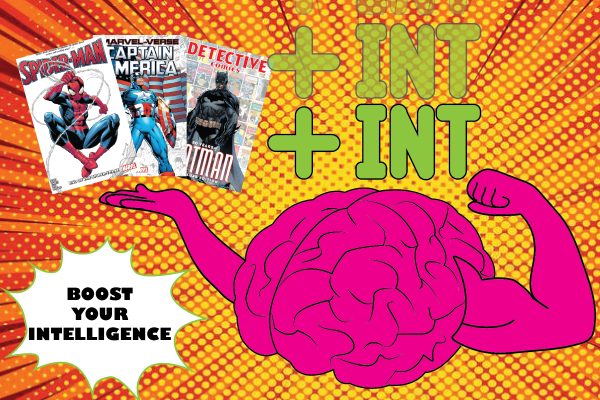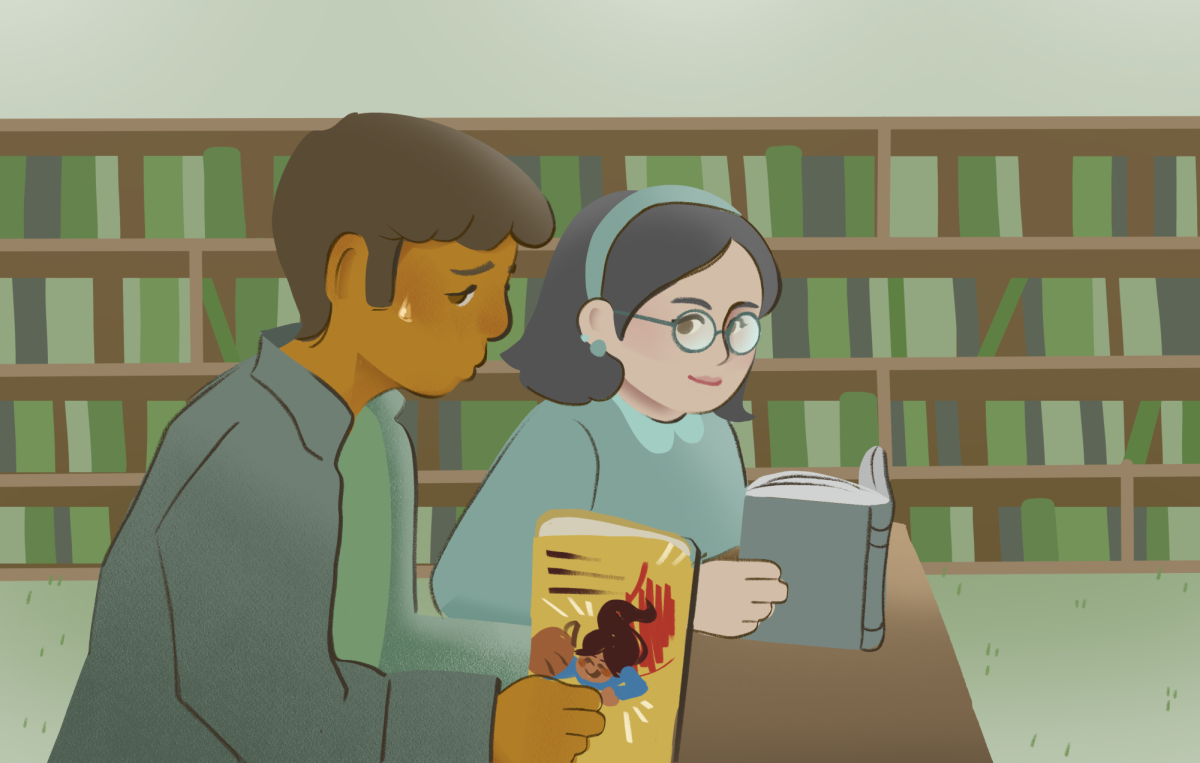The first comic book I read was a single issue of “Iron Man,” a billionaire tech-head turned superhero. This comic tied in with the Marvel cinematic Universe film “Iron Man 2,” and it was given to me and a handful of other guests at a family birthday party. As fate would have it, that wouldn’t be my last comic book.
I grew up watching Marvel and DC cartoons like “Batman: The Animated Series,” “Justice League Unlimited,” and “The Spectacular Spider-Man.”These shows began my interest in the superhero world.
Reading their best stories or the classics intrigued me. With stories like Spider-Man’s, I learned that if Peter Parker, the character’s alias, can manage his hero life and academic life, then I could take on any challenge that college presented me with.
With every comic I read, I was introduced to the grand world of superheroes that captivated me with each panel showcasing them in beautiful colors, portraying them with vivid art. It got me thinking, all the way to coming up with the essential question:
Can comic books qualify as literature?
Literature is commonly defined as “Written works, especially those considered of superior or lasting artistic merit. Books and writings published on a particular subject.”
Now, I like the first definition because it talks about how a written work leaves a lasting mark on the reader and the audience. Novels such as Wuthering Heights by Emily Brontë, Animal Farm by George Orwell, and many many more. These pieces of literature are frequently recognized for their timeless messages and use of la

nguage that captivates readers in every read-through.
Every genre has books that have left a lasting impact: romance, fiction, non-fiction, fantasy, sci-fi, etc. Some of them have won Nobel prizes because of the outstanding writing and message the author conveyed through their work, or they’ve been included in lists about the best books of a certain topic or genre.
Comic books don’t just have superhero comics. It may be the most popular market in the comic book industry, but there are still romance, biographies, non-fiction and historical graphic novels.
Less known but just as valuable are the retelling of classic fairytales in Fables by Bill Willingham. Or Anne Frank’s Diary: The Graphic Novel Adaptation by Ari Folman.
Comic books allow consumers to read a novel in a new light. It allows you to see and read the scenes you played out in your head as you read the novel. They have become more accessible and are cheaper than your average novel.
“The graphic diary is the perfect solution for the next generation. To reach the readers of the diary you also have to find their language-more people will get to know the story,” Folman said as his reason for using the comic medium.
The Handmaid’s Tale, a novel known for being set in the dystopian Republic of Gilead, a theocratic regime that has replaced the United States, was also adapted into a comic book by Renee Nault.
“Although the subject matter is bleak, I wanted the art itself to be beautiful, and for each page to stand as its own work,” Nault said when commenting on her motivation.
Comics aren’t just a way to bring back new readers to classics- characters new to our imagination can teach us life lessons.
Superheroes that are iconic to the medium are memorable for a reason. Morals, values and art that showcase these are seen in every comic possible. You will be left in awe as you are reading and seeing the art that sometimes is the stand out.
Spider-Man’s iconic motto is “With great power comes great responsibility.” This famous phrase, originally from Uncle Ben, applies not only to Peter’s superhero life, but also to his whole life. Although he may have literal powers, he still goes through problems that teenagers and college students go through. It reminds us that “power” is not something that makes us strong, but it’s how we deal with everyday problems that determine our “power”, our resilience, our strength, and our perseverance.
One of my favorite heroes is Superman, aka Clark Kent, the reason is that he is a journalist, just like me. We both write stories, we’ve both been in a newspaper and we both have hope in a world where there’s not much hope left.
Even though Superman is the strongest hero in the DC Universe, he’s a hero with and without his costume. As Superman, he saves the world and as Clark Kent, he helps Smallville and Metropolis. A strong panel that shows how Superman can save someone’s life not with his powers, but with his sense of empathy can be found in All-Star Superman #10. In this issue, we see a girl who attempted to jump from a building, but Superman flies to her and tells her, “It’s never as bad as it seems. You’re much stronger than you think you are. Trust me.”
Comic books also portray disabilities with various characters such as Barbara Gordon, Echo, Cyborg, Doctor Strange, Nick Fury, Moon Knight, and more.
Daredevil (aka Matt Murdock) was in a radioactive accident, which blinded him and amplified/heightened his other senses to extraordinary levels. By being a lawyer and a superhero, he adapted to his environment despite his disabilities; this taught me that no matter your disadvantages, everything is possible if you put your mind to it.
Another character with a disability that has been portrayed in various media like cartoons, movies, and comic books is Professor X.
Professor Xavier aka Professor X, leads the famous mainstream team of the X-men, an academy of super-powered mutants. Classic characters like Wolverine, Cyclops, Gambit and so many more that the list would never end, represent the mutants of the Marvel Universe. They are outlawed and disregarded by society, because of their powers and how different they are from your normal superheroes.
In an article from the Indiana Law Journal “”A Choice of Weapons”: The X-Men and the Metaphor for Approaches to Racial Equality” by Gregory S. Parks and Matthew W. Hughey, it outlines how the X-men is seen as a metaphor for racism.
“The X-Men serve as a buffer between these two conflicting groups with the goal to attain mutant equality through peaceful measures yet are also willing to fight for their cause. The determination of one group to attain dominance versus the determination of another group to maintain its present dominance is reflective of a similar struggle between races in the larger culture.”
Comic books help expand literature by allowing you to read, learn, and gain more knowledge, just as you would with a novel. Although comic books are a different venture of storytelling, it still remains with all the beats books and novels of any genre contain.







